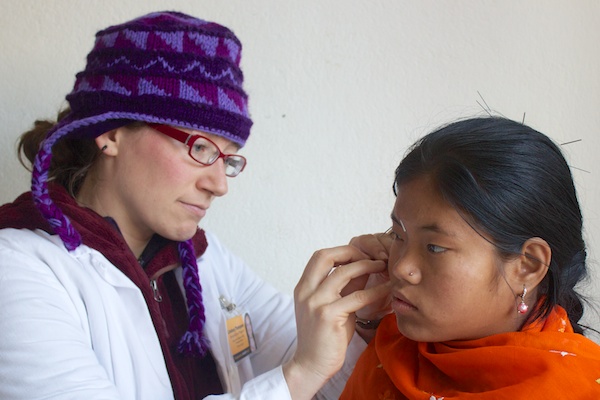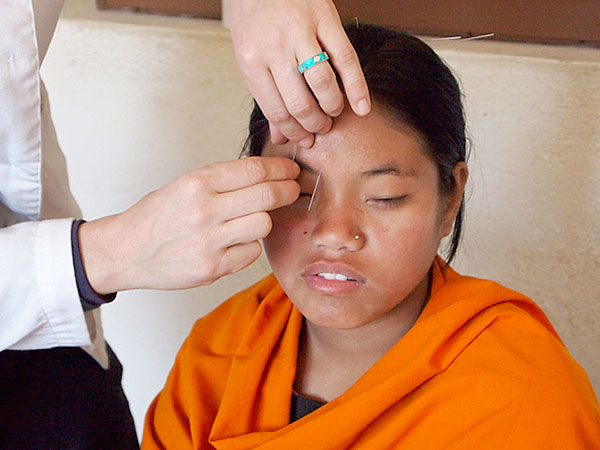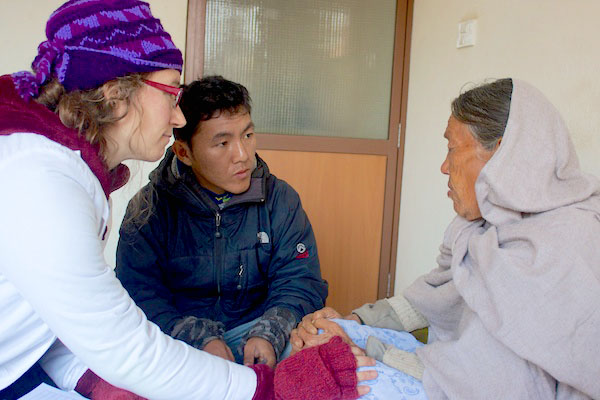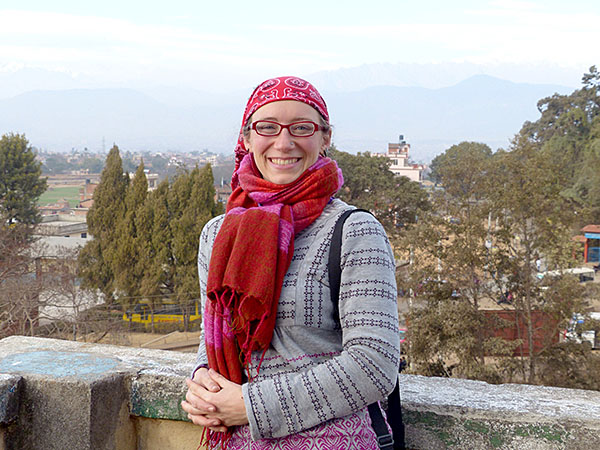
...but words can never hurt me. The teenage years appear to share a universal language of challenge. I remember my high school math teacher, giddily proclaiming that math overcame all language barriers across the globe. It seems the emotional roller coaster of self discovery during the shift towards an adulthood self shares a universal language that stretches to the Himalayas.
Asha Maya came see me again today. She is a sixteen year old with Bell's Palsy (a condition which paralyses one side of the face), who has been receiving treatment with the Acupuncture Relief Project for one year. At a glance, it is no longer obvious that the right side of her face droops and refuses to move.

I began working with Asha Maya in mid-January. Her voice whispers from her mouth and shyness perfuses most of our interactions. Over the last month, I feel that our relationship has grown. I get stronger eye contact, a deeper voice, and at times, we even joke. I tell her that I'm very happy to see her, and after the brief time lag of interpreting, Asha Maya's face lights up from within. In her melodic voice , she says she's glad to see me too. The smile, while one-sided, is an internal smile that warms her face, her eyes, and being. I think to compliment her on her beauty, but since there are many women in the room that I have not complimented, I hesitate and choose not to say anything.
I have her lift her eyebrows in mock surprise, pucker her lips, and smile to assess how much movement the facial muscles can achieve. After hearing so many class lectures about how effective Chinese medicine can be for facial palsy and stroke, the movements seem minute for her year of treatment. I ask her if she thinks the acupuncture is helping her. Asha Maya waggles her head from side to side in affirmation and tells me it is helping. After a moment she says quietly, "I just want my face to move again."

I continue using the protocols I learned in school and try to restore movement to her face with acupuncture. After I've placed the needles, I have a momentary lull in patients. I take the opportunity to thoroughly read the last year of chart notes, intending to bring the case up to the team later that evening and rethink her treatment plan. I learn quite a bit. Asha Maya has had slow and steady improvement. In the beginning, she could not fully close her right eye. Now she can. She currently sits with her eyes closed absorbing the work of the acupuncture and moxa combination.

Near the beginning of her chart, an annotation pops out at me. "She does not want to leave her house because the boys make fun of her." My heart aches. For a moment, I experience shock and a rise of indignation at the idea of peers teasing someone for an appearance change beyond their control. Then I remember my teenage years, filled with ruthless jeers and power struggles that weaponized tongues. Sticks and stones can break my bones, but words can never hurt me.
I wish the sing-song phrase our mothers taught us in the nursery held true. In reality, the words we use on one another linger for years, decades, and sometimes for a lifetime. I have sat with friends and patients discussing the past, hearing how words spoken a decade before hobble them now. I wonder if the injury of words flowered on the surface like bruises, if we would be more careful with our speech.

I resolve to speak my compliment to Asha Maya and to each patients when it pops into my head. As my mom used to say, "You never know if a person has heard a kind word today." Along these lines, uplifting compliments and acknowledgments can also stand the test of time. The review of Asha Maya's chart notes, sticks with me. I see it as a reminder of the power of our words. The power to infuse confidence, strength, and hope or to practice undermining verbiage. I hope to practice the art of building with my speech, and notice when I run the risk of becoming careless with my words. ---Lindsey Thompson











